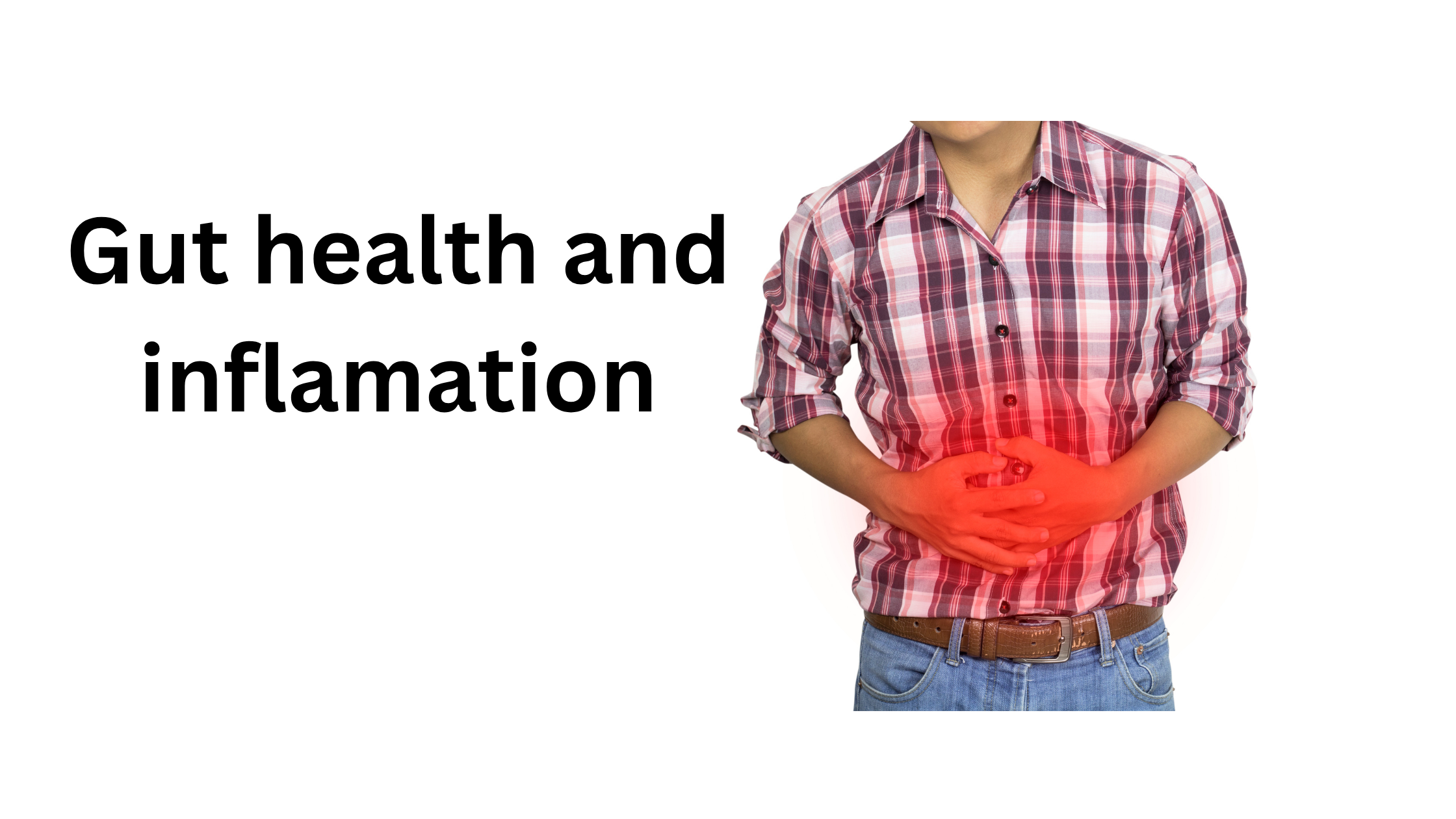Gut Health and Inflammation: How Probiotics Can Heal Your Digestive System
Chronic digestive issues like bloating, stomach pain, and food sensitivities often come down to one root cause: an inflamed gut. When your digestive system is constantly irritated, it can lead to more serious problems like IBS, leaky gut, and even autoimmune conditions. The good news? Probiotics, along with smart diet and lifestyle choices, can help calm this inflammation and restore balance to your gut.
What Exactly Is Gut Inflammation?
Your gut becomes inflamed when your immune system reacts to irritants, infections, or imbalances in your digestive tract. While some inflammation is normal (like when healing from an infection), chronic inflammation damages your gut lining over time. This can contribute to:
-
Irritable Bowel Syndrome (IBS)
-
Inflammatory Bowel Diseases like Crohn’s and Ulcerative Colitis
-
Leaky gut syndrome
-
New food sensitivities
-
Autoimmune flare-ups
Common Signs Your Gut Is Inflamed
How do you know if gut inflammation is your problem? Watch for these symptoms:
-
Frequent bloating and gas
-
Stomach cramps or pain
-
Diarrhea or constipation (or alternating between both)
-
Constant fatigue
-
Brain fog and trouble concentrating
-
Skin issues like acne or eczema
-
Unexplained weight changes
What’s Causing Your Gut Inflammation?
Several key factors can trigger and worsen gut inflammation:
-
Poor Diet – Processed foods, sugar, and artificial additives feed bad bacteria and irritate your gut lining.
-
Antibiotic Overuse – While sometimes necessary, antibiotics wipe out both good and bad gut bacteria, leading to imbalance.
-
Chronic Stress – Ongoing stress weakens your gut barrier and increases inflammatory responses.
-
Bacterial Imbalance – When harmful bacteria outnumber beneficial ones, inflammation follows.
-
Environmental Toxins – Pesticides, plastics, and heavy metals can all irritate and damage your digestive system.
How Probiotics Fight Gut Inflammation
Probiotics are live beneficial bacteria that can help heal your gut in several powerful ways:
-
Restoring Balance – They crowd out harmful bacteria and repopulate your gut with good microbes.
-
Healing the Gut Lining – Specific strains like Lactobacillus rhamnosus and Bifidobacterium longum strengthen your intestinal barrier, preventing “leaky gut.”
-
Calming Immune Reactions – Probiotics help regulate your immune system to prevent excessive inflammation.
-
Producing Anti-Inflammatory Compounds – Healthy gut bacteria create substances like butyrate that directly reduce inflammation.
Top Probiotic Foods to Reduce Inflammation
Want to heal your gut naturally? Add these probiotic-rich foods to your diet:
-
Kefir – This fermented milk drink contains up to 30 different strains of beneficial bacteria and yeasts.
-
Sauerkraut & Kimchi – Fermented vegetables packed with gut-healing lactic acid bacteria.
-
Miso & Tempeh – Fermented soy products that offer probiotics plus anti-inflammatory compounds.
-
Kombucha – A fizzy fermented tea full of antioxidants and beneficial microbes.
-
Yogurt with Live Cultures – Choose plain, unsweetened varieties containing Lactobacillus and Bifidobacterium strains.
Choosing the Right Probiotic Supplement
If you want extra support beyond food, look for a probiotic supplement with:
-
Multiple strains (like L. rhamnosus GG and B. longum)
-
10-50 billion CFUs per serving
-
Third-party testing for quality
-
Proper storage requirements (some need refrigeration)
Most people notice some improvements within a week, but for chronic inflammation, give it 4-8 weeks to see significant changes.
Additional Ways to Soothe Gut Inflammation
Beyond probiotics, these strategies can help heal your gut:
-
Eat Anti-Inflammatory Foods – Load up on leafy greens, berries, fatty fish, and olive oil while avoiding processed foods and sugar.
-
Prioritize Sleep – Poor sleep disrupts your gut bacteria – aim for 7-9 hours nightly.
-
Manage Stress – Try meditation, yoga, or deep breathing to calm inflammation.
-
Stay Hydrated – Water supports digestion and gut lining repair.
Frequently Asked Questions
Q: Can probiotics really reduce gut inflammation?
A: Absolutely! Specific strains have been shown to repair the gut lining and lower inflammatory responses.
Q: How long until my gut heals?
A: Mild cases may improve in weeks, while chronic inflammation can take several months of consistent care.
Q: Should I take probiotics every day?
A: Yes, daily probiotics help maintain balance and prevent flare-ups.
Q: Are there side effects?
A: Some people experience temporary bloating or gas as their gut adjusts.
Q: Are probiotics safe for kids and seniors?
A: Generally yes, but consult a doctor for age-appropriate recommendations.
The Bottom Line
Healing gut inflammation is possible with the right approach. By combining probiotic foods or supplements with an anti-inflammatory diet and stress management, you can restore your digestive health. Start with small changes today – your gut (and whole body) will thank you!
Remember: A healthy gut means better digestion, stronger immunity, and improved overall health. With patience and consistency, you can overcome inflammation and feel your best.









